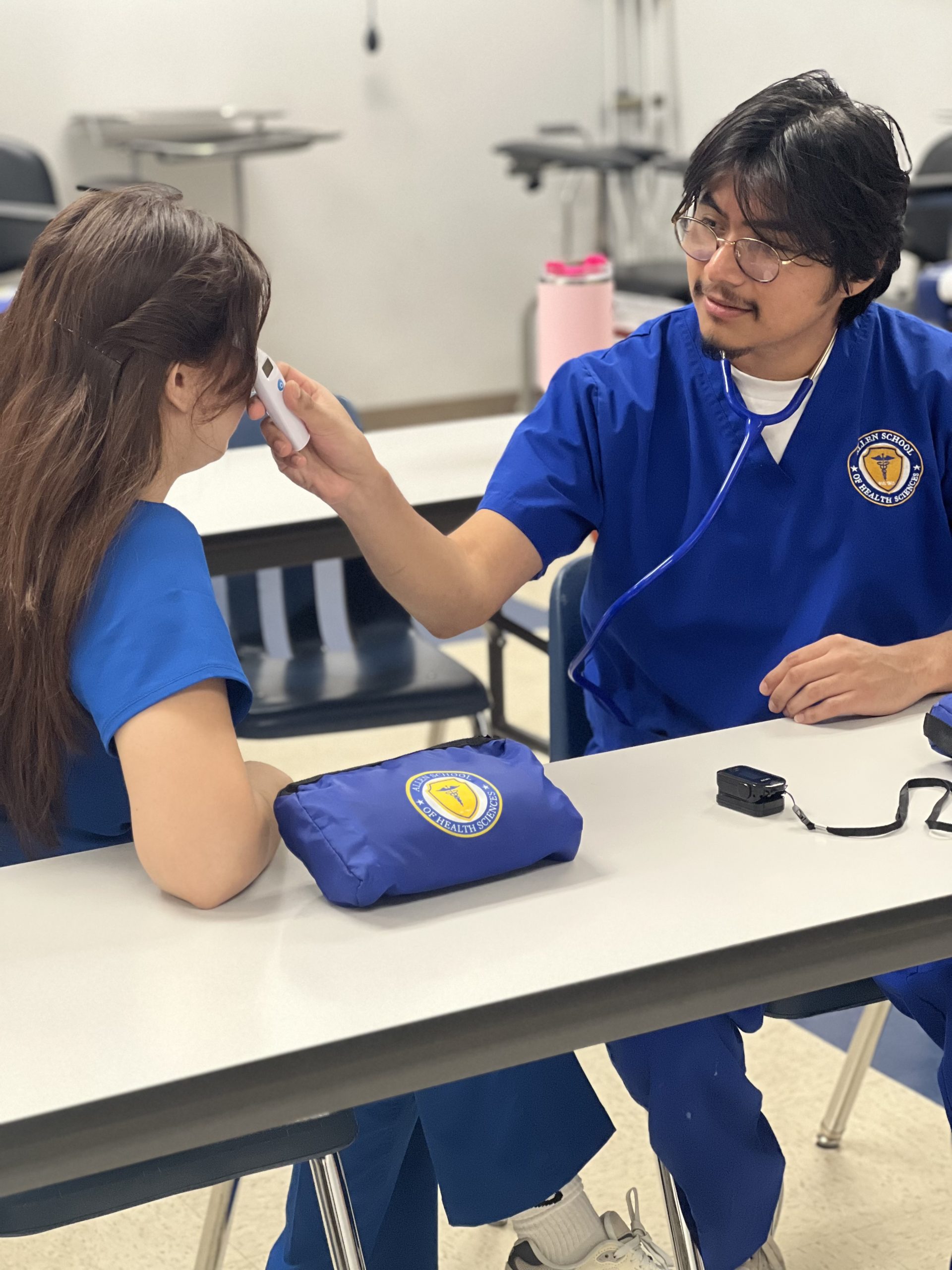The rapid evolution of healthcare has put telehealth services in the spotlight, transforming telemedicine from a convenience to a necessity. These changes have fueled a new demand for telehealth training for healthcare professionals, particularly medical assistants.
At The Allen School of Health Sciences, we empower MAs and students to take charge of their careers with innovative education.
The Rise of Telehealth
Telehealth has emerged as a fundamental component of modern healthcare, propelled by the need for remote care solutions during the COVID-19 pandemic. This digital transformation enables healthcare providers to offer continuous, accessible care while maintaining the safety of both patients and healthcare teams.
As telehealth platforms become more prevalent, the need for specialized training in these technologies has become clear, especially for roles integral to healthcare and patient communication, like medical assistants.
Importance of Telehealth Training
Training medical assistants in telehealth technologies is about more than familiarizing them with new tools; it is about enhancing the quality and efficiency of healthcare services.
Telehealth Training equips MA students with the essential skills to manage virtual consultations, handle electronic health records, and support patients navigating telehealth services. This training ensures that future healthcare professionals are prepared for their general roles and responsibilities and adept at using digital platforms that are increasingly becoming a staple in healthcare delivery.
Challenges of the Digital Divide
Despite telehealth’s advantages, certain barriers remain, particularly in underprivileged areas. These barriers include limited access to necessary technology and a lack of digital literacy among some populations.
Trained medical assistants can play a valuable role in helping their patients overcome these obstacles by assisting individuals with telehealth technologies and ensuring that all patients have equal access to quality healthcare, no matter their geographical location or economic status.
Practical Training Strategies
As telehealth becomes a more prominent option for healthcare services, healthcare professionals must implement practical training strategies to successfully utilize telehealth technologies. Training strategies can include hands-on practice with telehealth platforms, simulated patient interactions, role-playing scenarios, and ongoing education on best practices for virtual care. By implementing these practical training strategies, healthcare providers can improve their skills in delivering telehealth services effectively and efficiently, ultimately enhancing the quality of patient care in the digital healthcare landscape.
Benefits of Skilled Medical Assistants
Well-trained medical assistants are pivotal in the successful implementation of telehealth services. If you’re an MA trained in telemedicine, you’ll bring quite a few advantages to the table:
- Enhanced Patient Outcomes: Skilled medical assistants ensure the smooth operation of telehealth technologies, facilitating timely and effective patient care.
- Expanded Healthcare Access: By effectively managing telehealth platforms, medical assistants bring essential services to remote or underserved populations, extending the reach of healthcare providers.
- Inclusivity and Equity: Their expertise helps make health services more inclusive and equitable, ensuring that all patients, regardless of their location, health needs, or economic status, can access quality care.
- Improved Efficiency: Trained medical assistants can handle multiple telehealth tasks simultaneously, from patient scheduling to data management, increasing the overall efficiency of healthcare practices.
Build New Skills with The Allen School
The need for skilled medical assistants is growing. Whether you’re new to the field or want to improve your skills, we can help you prepare for the evolving healthcare industry. Contact the Allen School to learn how we can support your career growth.

